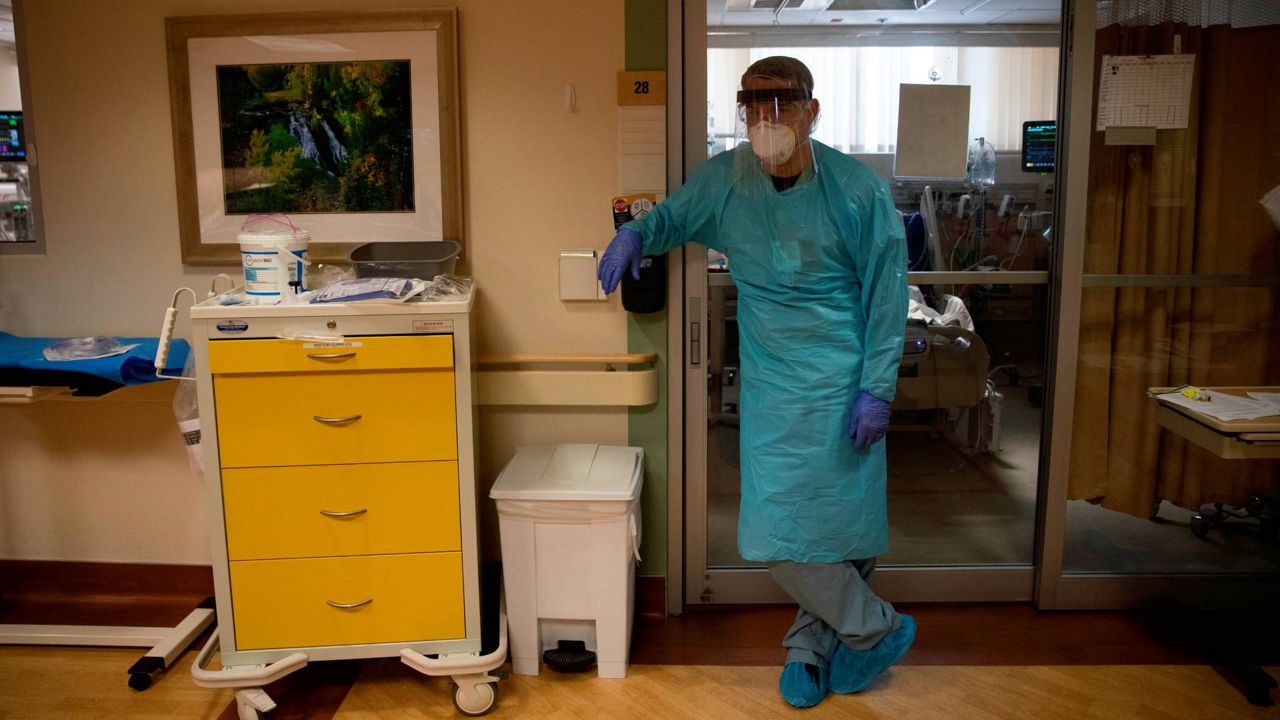Health care workers on the front lines of the COVID-19 pandemic suffer from the same type of trauma as combat veterans, researchers found.
Soldiers who experienced combat and health care workers through the pandemic both experienced “moral injury” at about the same rate, according to the study. Researchers from Duke University, Vanderbilt University and the Department of Veterans Affairs collaborated on the study.
“Moral injuries can happen when health care workers’ values and beliefs conflict with their actions or the ways they witness others acting,” said Jason Nieuwsma, a psychologist with VA and at the Duke University School of Medicine.
Those experiences include dealing with staffing shortages, watching patients die, rationing care and personal protective equipment, and refusing to allow friends and families into hospitals to visit with dying patients, according to the study. They also include watching people ignore medical advice for how to prevent the virus from spreading, like wearing a mask and getting vaccinated.
“While ‘burnout’ is often used to describe the effects of ongoing stress in the workplace, moral injury is used to describe the damage done to the conscience or identity of people who might witness, cause, or fail to prevent acts that go against their own moral standards,” said Nieuwsma, the lead author on the study.
“For example, with health care workers, this might entail them making choices or being part of situations that stray from their genuine commitment to healing,” he said.
Moral injury can lead depression, feelings of isolation and other psychological conditions, Nieuwsma said. It's closely related to post-traumatic stress disorder, he said.
For combat veterans, Nieuwsma said PTSD is mostly associated with feelings of fear and anxiety. But they also have "experiences of guilt or shame or identity, 'who am I that I participated in this thing or that I was part of this kind of thing?'" he said. Moral injury can also lead people to loose trust in their comrades or people in authority.
In health care workers, he said, moral injury also leads to higher rates of burnout.
"We also heard from lots of health care workers feelings of betrayal at different times during the pandemic," Nieuwsma said. That could be betrayal by political leaders, hospital leaders or society at large.
"Health care workers being at work all day long and seeing what they were seeing, seeing people dying or near death due to the coronavirus and then leaving work and looking around and going, 'There's a complete disconnect here.' The rest of society isn't acting in a way that's helping to stop this at all," he said.
RELATED: ICU nurses talk about strength, self care after 2 years of treating the sickest COVID patients
The study was based on data from 618 veterans, who served in combat after 2001 and a new survey of more than 2,000 people who worked in health care during the coronavirus pandemic, including nurses, doctors and emergency responders.
The health care workers surveyed were enrolled in the Healthcare Worker Exposure Response and Outcomes Registry, called the HERO registry, which includes people from across the health care industry who joined to contribute their experiences to research on COVID-19.
“The study authors found that 46% of veterans and 51% of health care workers indicated being troubled by others’ immoral behavior, whereas 24% of veterans and 18% of health care workers indicated being troubled by violating their own morals and values,” according to Duke University.
The study notes there is an association between the potential for moral injury and how empowered people are, such as being an enlisted soldier versus being an officer. The less socially empowered, the higher the potential for moral injury, the researchers said.
The findings line up with how psychologists understand moral injury and how it can develop when people think they’ve been betrayed by authorities, according to the study.
“There may be lessons to learn from how we are approaching moral injury at Veterans Affairs,” said Vanderbilt’s Dr. Keith Meador. “Our study is suggestive with respect to the importance of workplace culture and leadership for moral injury in health care. I think the role of the community, whether that be at work or elsewhere, is truly central.”
“It is sobering to see how many health care workers are troubled at a moral level because of their work experiences during the pandemic. This may help us to understand some of the current challenges facing health care systems across the country,” Duke’s Nieuwsma said.



